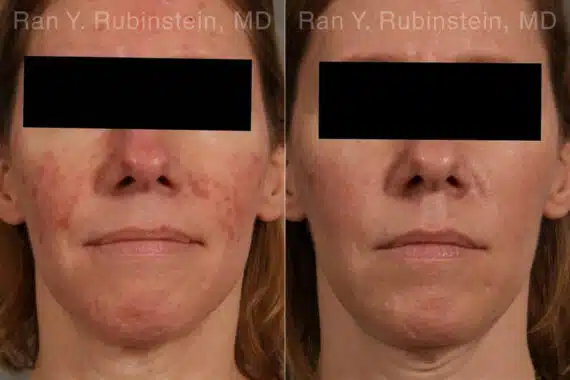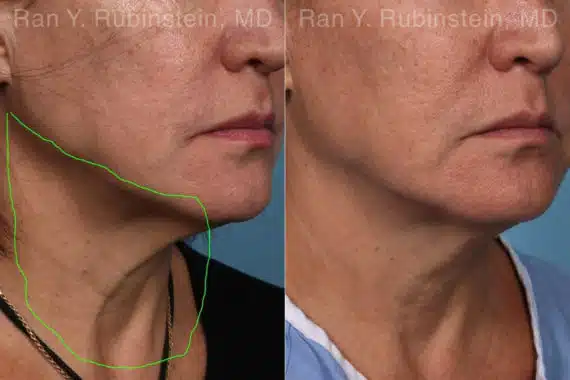Did you have a laser treatment or do you want schedule one? These treatments give new life to skin besides fix problems such as small lines, discoloration, marks from acne next to rough texture. They function through collagen production stimulation and also they make the skin renew itself. The effect is smoother, younger looks. Laser treatment improves the skin in many ways – for example, it enhances texture also lessens spots and creases. But getting the best results requires appropriate care after treatment.
By following your provider’s aftercare recommendations, you can reduce the risk of side effects like redness, irritation, and prolonged downtime. The way you care for your skin during recovery will determine how quickly you heal and how long your results last. Let’s explore how you can give your skin the care it needs after laser treatment.

How Long Does It Take for Skin to Heal After Laser Treatments?
The skin recovers from laser treatments within two to three weeks. At this period adherence to the surgeon’s aftercare advice matters a lot. Appropriate aftercare helps you in achieving good results plus it lowers the chance of problems. It guarantees your skin gets better in a smooth way.
How to Care For Your Skin After a Laser Treatment
There are many ways to take care of your skin as it heals from a laser treatment. However, some steps are more important than others to ensure proper healing and the best results. Here are the most essential ones:
- Stay Hydrated: Drink plenty of water throughout the day to help your skin stay elastic and heal faster. Hydration supports overall skin health and aids in the recovery process.
- Keep Your Skin Hydrated: Laser treatments can leave your skin feeling dry and sensitive. Apply a gentle, fragrance-free moisturizer several times a day to replenish moisture and protect the skin’s barrier.
- Apply Sunscreen: Your skin becomes especially sensitive to UV rays after laser treatment. Use a broad-spectrum sunscreen with an SPF of at least 30, even indoors, to prevent hyperpigmentation and further damage.
- Use Gentle Cleansers: Wash your face with mild, non-abrasive cleansers that won’t strip your skin or cause irritation. Avoid products with harsh chemicals or fragrances during the healing phase.
- Avoid Picking or Scrubbing: It’s crucial to let your skin heal naturally. Avoid picking at any scabs or exfoliating the treatment area, as this can lead to scarring or infection.
- Follow Prescribed Skincare: If your provider has recommended specific ointments or healing creams, make sure to use them as directed. These products are designed to soothe your skin and support recovery.
Start Your Journey to Success, Don’t Wait More!
Join our satisfied clients who’ve experienced safe, effective treatments.
What to Avoid After Laser Skin Resurfacing On The Face
Knowing what to avoid after a laser treatment is just as important as knowing what to do. Your skin will be extra sensitive during the healing process, and certain habits or products can cause irritation, slow down recovery, or even lead to complications. To protect your results and ensure a smooth healing process, avoid the following:
- Vigorous Exercise: Sweating can irritate your skin and introduce bacteria to the treated area, potentially causing breakouts or infections. Take a break from intense workouts for a few days and stick to gentle activities like walking until your skin has healed.
- Direct Sunlight: Avoid exposing your skin to direct sun exposure for 4-6 weeks after treatment. UV rays can cause hyperpigmentation, slow healing, and increase the risk of scarring. If you must go outside, wear a wide-brimmed hat and apply a high-SPF, broad-spectrum sunscreen.
- Harsh Skincare Products: Steer clear of products containing retinol, glycolic acid, salicylic acid, alcohol, or any exfoliating agents. These ingredients can be too aggressive for healing skin and may cause excessive dryness, irritation, or peeling.
- Hot Environments: Heat can exacerbate redness and irritation, so avoid steam rooms, saunas, and hot showers. Instead, wash your face with lukewarm or cool water to soothe and refresh your skin without causing unnecessary stress.
- Heavy Makeup: Your skin needs time to breathe and recover, so avoid applying heavy foundation, powders, or concealers for at least a few days. Ideally, you should avoid any type of makeup until fully healed, but if you need to wear it, opt for lightweight, non-comedogenic, and mineral-based products that won’t clog your pores.
- Excessive Touching: Keep your hands off your face to prevent introducing bacteria that could lead to infections. Avoid scratching, rubbing, or picking at any peeling or flaking skin, as this can cause scarring or slow down the healing process.
Patient Results
* All patients are unique and individual results may vary.
Common Side Effects and How to Manage Them
Understanding common side effects can help you manage them effectively:
- Redness and Swelling: These are normal and typically subside within a few days. Apply cool compresses and gentle moisturizers to ease discomfort.
- Mild Itching: Avoid scratching. Use the recommended soothing ointments provided by your healthcare provider.
- Dryness and Peeling: Regular moisturizing can significantly reduce dryness and peeling.
Always contact your provider if side effects seem severe or prolonged.
When to Expect Results After Recovery
Laser treatment results gradually appear over the weeks following your cosmetic procedure, with optimal results typically visible after several weeks or months, depending on the specific treatment type. Your provider will outline a realistic timeline during your consultation.
Why Choose Dr. Rubinstein for Your Laser Procedure?
Choosing the right provider for your laser treatment is crucial. Dr. Ran Y. Rubinstein stands out for the following reasons:
- Top Facial Plastic Surgeon: Recognized as one of the leading facial plastic surgeons in New York and New Jersey.
- Double Board Certified: Certified by the American Board of Facial Plastic Surgery and the American Board of Otolaryngology-Head and Neck Surgery.
- Extensive Experience: Over 20 years of experience in private and academic practices.
- Laser Medicine Expert: Active member of the American Society for Laser Medicine & Surgery.
- Academic Leader: Serves as a Clinical Professor at New York Presbyterian Hospital, educating other physicians and specialists.
Choosing Dr. Rubinstein ensures personalized, safe, and highly effective laser treatments.
Frequently Asked Questions (FAQs)
Schedule Your Consultation Today
Dr. Ran Y. Rubinstein, a double-board-certified facial plastic surgeon, specializes in advanced laser treatments and has been a trusted educator and trainer for over two decades. With his expertise in facial procedures and laser technologies, Dr. Rubinstein ensures patients receive personalized care and exceptional results. To schedule a consultation, call us today at (845) 863-1772 and take the first step toward radiant, rejuvenated skin.


